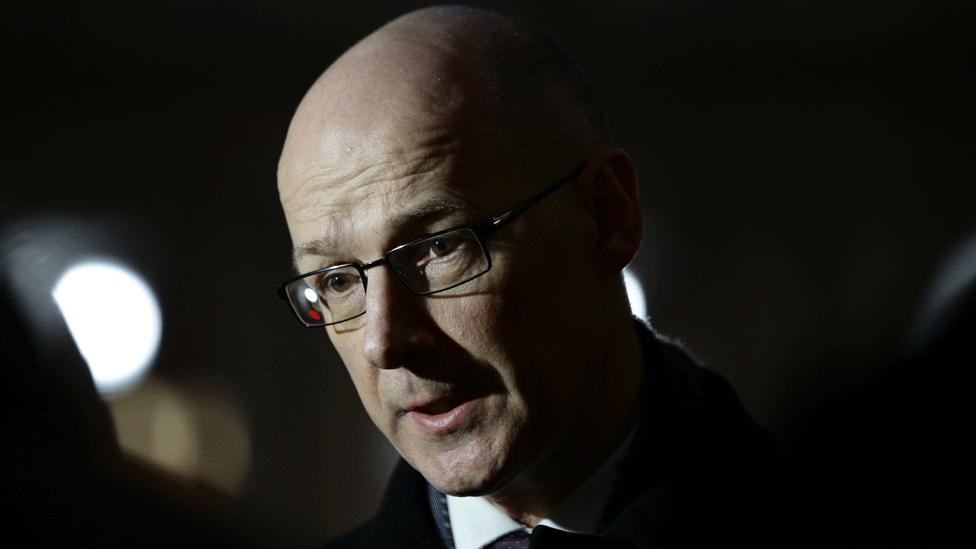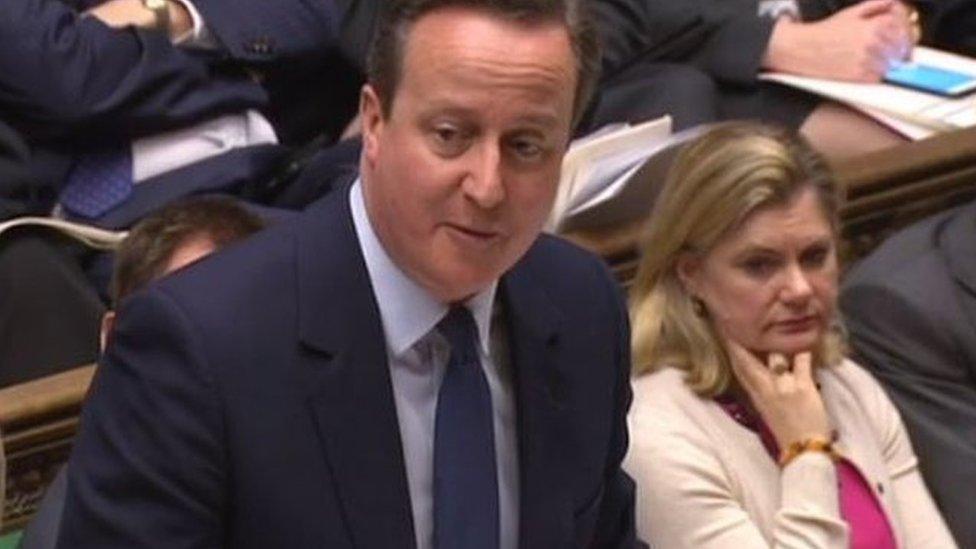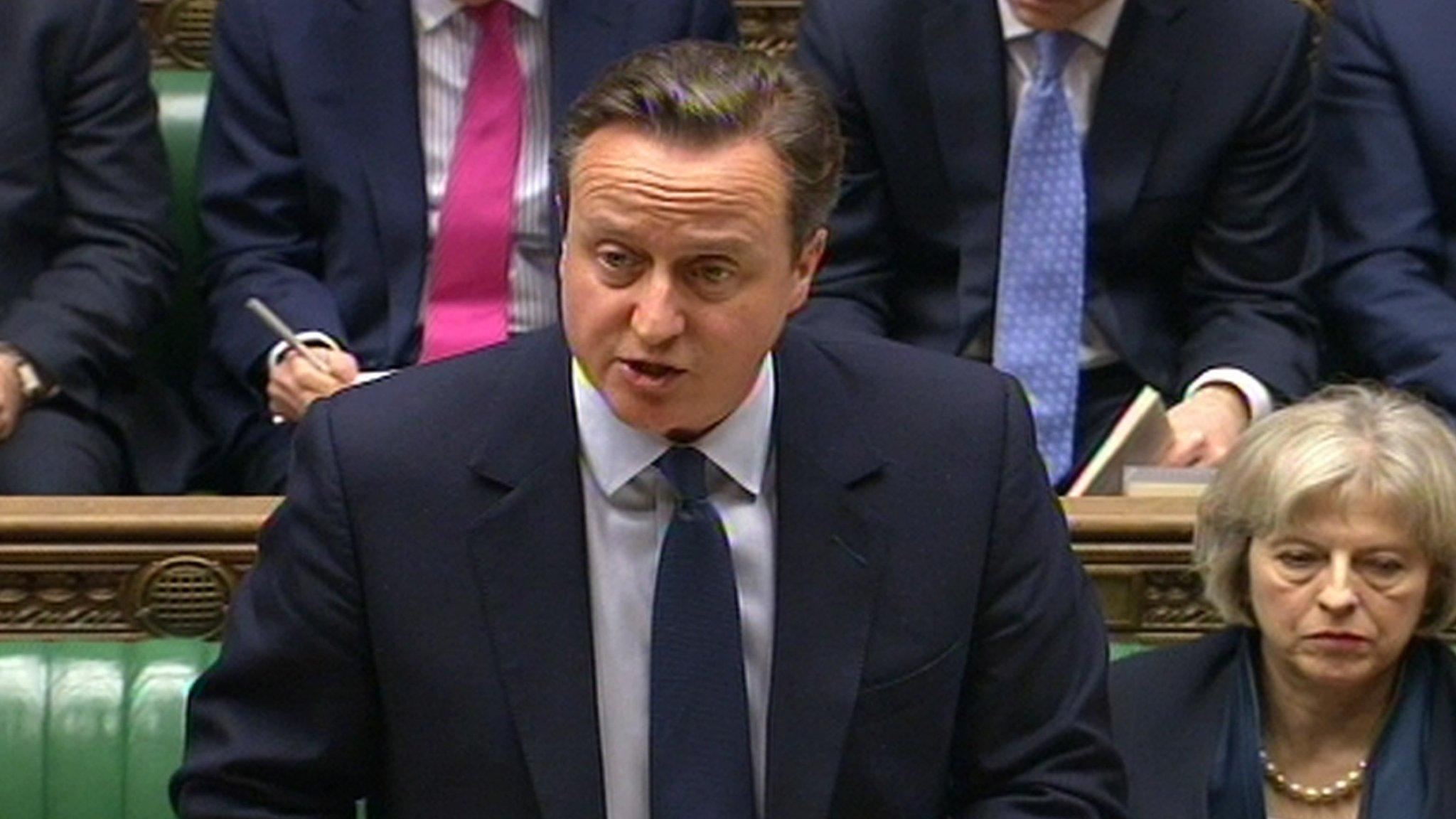Fiscal framework: PM's different messages to different audiences
- Published
David Cameron: "I want the SNP, here and in Holyrood, to have to start making decisions."
So what to make of the prime minister's comments anent the continuing row between the UK and Scottish governments over future funding, over the fiscal framework?
In particular, what do they make of it in governing circles at Holyrood? From the chat today, one discerns two distinct responses, albeit ones that blur at the edges as is commonly the way in the difficult world of politics.
One response is: "Same old, same old." David Cameron giving the SNP a kicking, demanding that they end "grievance" politics and get on with taking decisions about using the planned new tax powers.
The other response notes Mr Cameron's comment to the effect that nobody wants a deal on this controversy more than he does. Making it personal, in short. An indication, perhaps, that he is ready to intervene to encourage/order the Treasury to settle?
Already, there has been a direct telephone discussion on the issue between the PM and Nicola Sturgeon. That took place on Monday, coinciding with the latest round of formal talks.
Now, it is possible, of course, to detect both messages in the PM's words - but to conclude that they were aimed at different audiences.
Remember the underlying agenda here. David Cameron wants Scotland settled - or, at least, as quiescent as possible in these restless times.
Further, he wants to persuade the good and sensible people of England that the Scottish Question is sorted, that Scotland will in future be largely self-funding - and that those self-same g. and s. people will no longer be subsidising the Scots.
How personal is it for the PM?
I know, I know, that is a jejune interpretation, at best. Others will vigorously contest the notion of subsidy, pointing to historic relative spending and revenues, including oil.
All I am saying is that the PM is seeking to counter what may, arguably, be a false impression in England - but one that is politically potent nonetheless.
So the "grievance" message was designed to filter through to the people of England via his own backbenchers - and the telly. It duly elicited supportive cries of "hear, hear" in the chamber.
Me, I am more inclined to hear (once) the other message. That this is personal for the PM. He endorsed the vow (sorry, Vow). He endorsed Smith. He promised to deliver new tax powers.
Both those messages matter. For both those reasons - English politics and personal commitment - David Cameron wants a deal.
Many inside the Scottish government are beginning to conclude that a deal may be impossible. They base this on the fact that virtually no progress has been made in recent discussions between the Scottish Finance Secretary John Swinney and Greg Hands, the Chief Secretary to the Treasury.

Scotland's Finance Secretary John Swinney has been in London to talk about the fiscal framework
Others - the optimists, if you like - believe that a Prime Ministerial intervention could be decisive. Although one in that camp confided to me that, without such an intervention, the prospects of a deal were "zero."
Both these camps, of course, are seeking to extract further concessions from the Treasury. For their part, the Treasury negotiators insist that they have offered a rigorously fair deal - which protects the interests of both Scotland and rUK.
Simultaneously, all sides, at Holyrood and Westminster, are preparing their exit strategies, their excuses, their apportionment of blame.
Next steps? Mr Swinney will submit a revised proposal to the Treasury in the next day or so. The Holyrood committee scrutinising new powers will tomorrow extend its deadline to receive the outline of a deal by one week.
After that, it's down to politics and personality.
- Published10 February 2016

- Published10 February 2016
